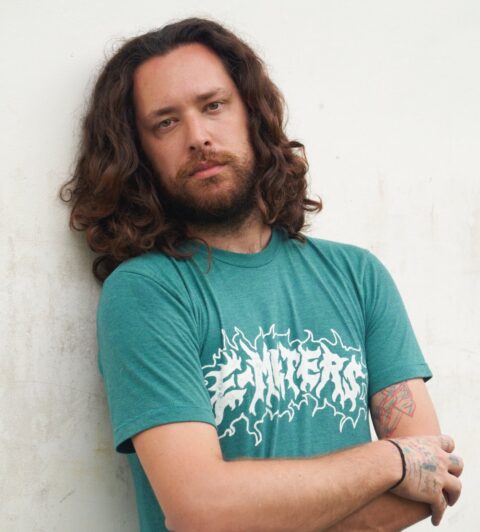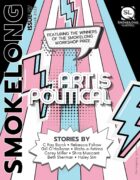Personally, I’ve always found flash fiction particularly well suited for fabulist and strange premises. Yet, still moving away from realism can pose issues when compression and brevity are also key. How do you navigate this relationship between brevity and grounding the reader in which tooth juice is even more nourishing than food?
Reading flash fiction, you have to trust the author and be ready for quick moves, or in this case, a very drawn-out moment of time that hops between this frozen awkward question and the sisters’ exposition. Bouncing back and forth between possible answers and the history of her tooth helps to keep the pacing of the story easy to digest. The story is hinged upon a visual of something familiar, a beauty pageant contestant on stage with her sister in the audience. The sisters are close, but you can tell they’re quite different.
I wanted the tooth juice to be a sort of breast milk, created out of necessity to sustain life. Much how the mouth salivates, this tooth is like natural spring water found in an unusual location. I think the sister on stage wants to help others so badly that her body manifested a way, and hopefully to the reader, it doesn’t seem so farfetched.
Using tangible things to help describe or transition into the unknown makes understanding and believing easier for the reader.
What is your relationship with beauty pageants and what makes this setting so ripe for a story?
I don’t have any connection to beauty pageants besides what I’ve seen on TV, but there’s something so human about competing for beauty, something so superficial and skin deep, that it felt like an easy capsule for bigger issues.
I think the question of “What would you do to change the world?” and a contestant answering “End world hunger” has become a cliché that I wanted to have as the background joke.
This setting has people on stage and people in the audience observing them, naturally creating a scenario in which anything can happen. It was never a question to me about whose point of view the story needed to be told from. I believe a close family member sitting in the crowd, uncertain of what was going to happen but privy to Miss Texas’ secret watching the moment unfold along with the reader was crucial for the tension.
The tooth is unreal, but the fact that we could end world hunger and don’t is the strange part. There’s so much food waste from under-planning and overindulgence. The juxtaposition of beauty and how people “eat with their eyes” would make this disgusting form of food unappealing to the world. The competition seemed a fitting attempt for me to tackle a more serious issue as a writer.
As a writer who also writes poetry and creative nonfiction, have you found that other genres have informed your approach to fiction?
I think writing poetry sometimes makes my prose fluffy, I’ll sometimes get in word spirals where I’m just connecting words I think sound interesting together to see what happens. Most of the time it leads to a dead end, but it’s a good exercise to explore choices. I try not to let my personal life enter my fiction too much, however I find my fears usually overlapping with what the protagonist must overcome. Who doesn’t fear choking on stage in front of the whole world with tooth juice drooling out of your mouth?
Perhaps this is low hanging fruit, but when your piece hinges on the response to a specific question, I feel like I am compelled to ask, “What would you do to change the world?”
Honestly, there’s a lot I would change. Although, some of the things I would change would be to preserve the natural beauty the world has to offer, which humans are destroying. I’d eliminate single-use plastic, increase renewable energy, divert biodegradable material from the trash to compost, and support organizations like Planned Parenthood. There would be enough funds to do great things if we had a higher tax bracket on billionaires. Eat the rich, I say.



 The core workshop of SmokeLong Fitness is all in writing, so you can take part from anywhere at anytime. We are excited about creating a supportive, consistent and structured environment for flash writers to work on their craft in a community. We are thrilled and proud to say that our workshop participants have won, placed, or been listed in every major flash competition. Community works.
The core workshop of SmokeLong Fitness is all in writing, so you can take part from anywhere at anytime. We are excited about creating a supportive, consistent and structured environment for flash writers to work on their craft in a community. We are thrilled and proud to say that our workshop participants have won, placed, or been listed in every major flash competition. Community works.